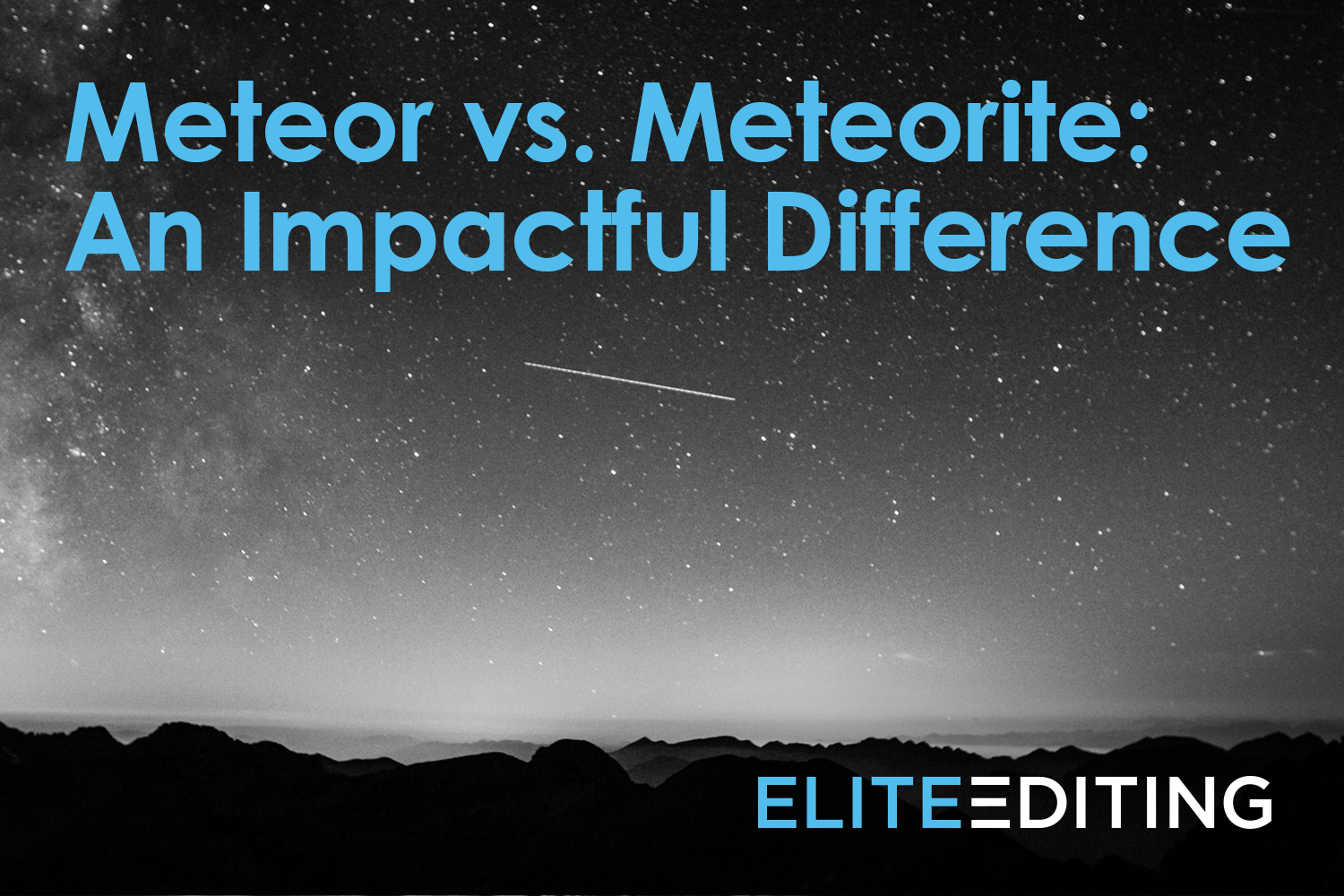
Look up at the night sky. Hurry, or you’ll miss it. What’s that streak of light flashing through the inky blackness of space? A shooting star!
So would that make it a meteorite or a meteor? The meteor vs. meteorite conversation can be tricky because both words describe an out-of-this-world phenomenon, but one of them has an impactful extra step. That shooting star streaking across the sky is definitely a meteor…but it could become a meteorite.
What Is a Meteor vs. Meteorite?
A meteor is the flash or streak of light created when a piece of debris enters Earth’s atmosphere at a high speed and encounters friction from the atmospheric gasses. This friction generates heat, and the heat causes the debris to burst into flame, creating a meteor—sometimes referred to as a “shooting star” or “falling star.”
Meteors are a fairly common occurrence, showing up on almost any given night. More often, though, meteors are observed during “meteor showers,” when Earth’s orbit drags them through a field of debris. This causes dozens of flashes to appear to come from the same spot in the sky, making it seem like the meteors are raining down on us.
What Is a Meteorite?
An important thing to remember when deciding between meteor vs. meteorite—and when describing what you’re seeing—is that meteorites are no longer in the sky. A meteorite is debris from space that makes it through the atmosphere without being completely incinerated. This remaining debris is usually no larger than a pebble, but meteorites that start as very large objects can make a huge impact—even after the atmosphere resizes them.
Meteorites are much less common than the meteors that hail their arrival. Only five confirmed (and one probable) meteorite falls took place in 2017.
What Is a Meteoroid?
Whatever your grammatical stake in the meteor vs. meteorite conundrum, one thing is relatively certain:
It all starts with a meteoroid.
A meteoroid is the interplanetary debris that causes a meteor to become a meteorite. Meteoroids are chunks of rock, ice, metal, or dust (or a combination of two or more of these components) that float around in interplanetary space. Most often, they are tiny—no bigger than a grain of rice. Meteoroids can, however, be very large. As long as it is less than a kilometer (about a half mile) in diameter, it is still considered a meteoroid.
Meteoric vs. Meteoritic
One final difference between meteor and meteorite is seen in their adjectival forms. Meteoritic and meteoritical, the adjective forms of meteorite, are only used in relation to meteorites. This could be to describe the crater left behind by a meteoritic impact or the meteoritical research team studying the space rock in the middle.
Meteoric, on the other hand, also has a secondary metaphorical use in addition to its ability to describe meteors and other astronomical phenomena. This adjective can be used to describe something that happens quickly, dazzlingly, and unexpectedly—such as the meteoric rise to fame of a viral YouTube star.
We hope this blog has had its intended impact—and that you now know the difference between meteor and meterorite!
Want to read more about commonly confused words?
Check out these articles to set the record straight:
Resources
- https://hubblesite.org/reference_desk/faq/answer.php.id=22&cat=solarsystem
- https://www.lpi.usra.edu/meteor/metbull
- https://www.merriam-webster.com/dictionary/meteor
- https://www.merriam-webster.com/dictionary/meteorite
- https://www.merriam-webster.com/dictionary/meteoroid
- https://www.merriam-webster.com/dictionary/meteoric
- https://www.nasa.gov/mission_pages/asteroids/overview/fastfacts.html
https://solarsystem.nasa.gov/small-bodies/meteors-and-meteorites/in-depth







